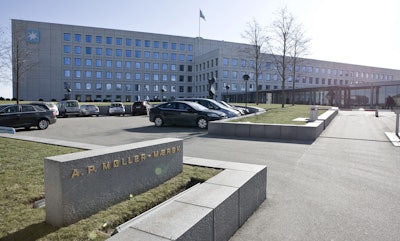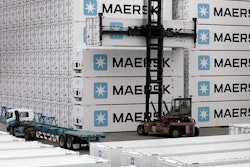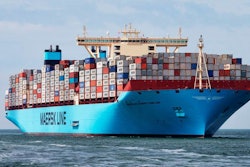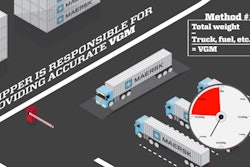
A.P. Moller - Maersk A/S will separate into two divisions; an integrated transport and logistics division and an energy division.
The main growth focus of A.P. Moller - Maersk A/S going forward will be delivering best in class transportation and logistics services as an integrated transport and logistics company. Building on the group’s position within container transport and port operations, and in supply chain management and freight forwarding, Transport & Logistics will leverage its position through new product offerings, digitalized services and individualized customer solutions.
As announced on June 23, 2016, the board of directors tasked the management of A.P. Moller - Maersk A/S to perform a review focusing on the strategic and structural options for the Maersk Group with the objective of generating growth, increasing agilities and synergies and unlocking and maximizing shareholder value with the long-term view.
The board of directors expects that the oil and oil-related businesses in A.P. Moller - Maersk A/S will require different solutions for future development including separation of entities individually or in combination from A.P. Moller - Maersk A/S in the form of joint-ventures, mergers or listing. Depending on market development and structural opportunities, the objective is to find solutions for the oil and oil related businesses within 24 months.
“The industries in which we are operating are very different, and both face very different underlying fundamentals and competitive environments,” said Michael Pram Rasmussen, chairman of the board. “Separating our transport and logistics businesses and our oil and oil related businesses into two independent divisions will enable both to focus on their respective markets. This will increase the strategic flexibility by enhancing synergies between businesses in transport and logistics, while ensuring the agility to pursue individual strategic solutions for the oil and oil related businesses”.
Transport & Logistics will consist of Maersk Line, APM Terminals, Damco, Svitzer and Maersk Container Industry based on a one company structure with multiple brands. The mission of these businesses is to enable and facilitate global supply chains and provide opportunities for customers to trade globally.
Since 2008, the group has focused on building a lean transparent global conglomerate with each business unit operating on arm’s-length principles. Managing and operating the business activities in transport and logistics in a more integrated manner will enable profitable growth through stronger collaboration and disciplined capital allocation.
The strategy of Transport & Logistics rests on three pillars to deliver long-term profitable growth.
- Product offering and customer experience will be improved based on the combined capabilities of Maersk Line, APM Terminals and Damco in combination with industry-leading digital solutions.
- By operating as one entity, Transport & Logistics will be able to harvest synergies and optimize operations to secure the industry’s most effective and reliable network.
- Strong capital discipline and better utilization of assets will be ensured. When making investments, acquisitions will be the preferred option.
- Maersk Line will grow market share organically and through acquisitions.
- APM Terminals will focus on cost and utilization and increase its focus on operational excellence to enhance returns and deliver improved service to existing and new third party customers.
- Damco and Maersk Line will collaborate to deliver new innovative customer solutions supported by significant investments into digital technology.
- Svitzer will pursue a growth strategy based on its market leading position and synergies with APM Terminals and Maersk Line will increasingly be explored.
- Maersk Container Industry will collaborate with Maersk Line on technology development and efficient production planning.
Commercial, as well as cost synergies, will be unlocked by better utilization of existing assets and by the development of new digital solutions. The estimated synergies are expected to generate up to two percentage points ROIC improvement over a period of three years. No material synergies are expected in 2016.
Energy will consist of Maersk Oil, Maersk Drilling, Maersk Supply Service and Maersk Tankers.
Long-term growth in energy demand and sharp reductions in investments in the global E&P industry in recent years, leading to an expected reduction in oil supply in the coming years, provide opportunities to grow Maersk Oil based on the company’s key technical competencies. Maersk Oil will adjust its current strategy to focus its portfolio in fewer geographies to gain scale in basins, particularly in the North Sea, where it can leverage its strong capabilities within subsurface modelling, well technology and efficient operations. Maersk Oil will aim to strengthen its portfolio through acquisitions or mergers.
Further, Maersk Oil will mature existing key development projects, while keeping exploration activities and expenses at a low level. While the strategic focus will be reflected in a disciplined capital allocation, investments in strategic projects already sanctioned or under development will continue as planned.
Maersk Drilling, Maersk Supply Services, and Maersk Tankers will continue to optimize their market position and operation with the existing fleet and order book. Additional investments in the group’s offshore service businesses and Maersk Tankers will be limited.
Financial reporting for the new structure will be effectuated from the financial year 2017.
The registered management of A.P. Moller - Maersk A/S will be composed and changed as follows:
- Søren Skou will continue as group CEO of A.P. Moller - Maersk A/S and CEO of the Transport & Logistics division,
- Claus V. Hemmingsen will be appointed group vice CEO of A.P. Moller - Maersk A/S effective on October 1, 2016, and CEO for the Energy division,
- Jakob Stausholm will be appointed group CFO of A.P. Moller - Maersk A/S as of December 1, 2016. On the same date, group CFO Trond Westlie will step down as member of the registered management and leave the group,
- Jakob Thomasen will step down as member of the registered management and CEO of Maersk Oil effective on October 1, 2016, and will leave the Group on November 1, 2016.
- Kim Fejfer will step down as member of the registered management effective on October 1, 2016, and as CEO of APM Terminals effective on November 1, 2016, when he will also leave the group.
Group CEO of A.P. Møller – Mærsk A/S, Søren Skou says:
“Both Energy and Transport & Logistics have strategies positioning them for growth and strategic agility. Transport & Logistics will be able to provide new and digitized world-class solutions for customers, while at the same time capture functional cost synergies and better utilization of existing assets. Energy is well positioned to leverage Maersk Oil´s expertise and gain scale in select geographies, particularly in the North Sea. Its structural agility will enable management to pursue new and different structural solutions and investment.”
Chairman of A.P. Møller Holding A/S, Ane Mærsk Mc-Kinney Uggla, says:
“A.P. Møller Holding was established mainly to safeguard the long-term viability of the A.P. Møller - Mærsk activities. Since then, A.P. Møller Holding has developed its considerations about the future of A.P. Møller - Mærsk. These have been given to the board of directors of A.P. Moller - Maersk A/S.
“Historically the Maersk activities’ strategy and structure have always undergone changes. And these changes will continue in order to stay agile.
“While we are rooted in shipping and energy, we must never become static in a dynamic world. We therefore welcome the new strategy and structure announced by the A.P. Moller - Maersk A/S. A.P. Møller Holding will continue to be an active and influential owner of A.P. Møller - Mærsk activities, applying our core values and name where relevant; and as stated in the trust deed of the A.P. Møller Foundation.
“This means that we see A.P. Møller Holding remaining as an influential shareholder in business units undergoing separate structural changes: they will continue to be part of the A.P. Møller family.”















